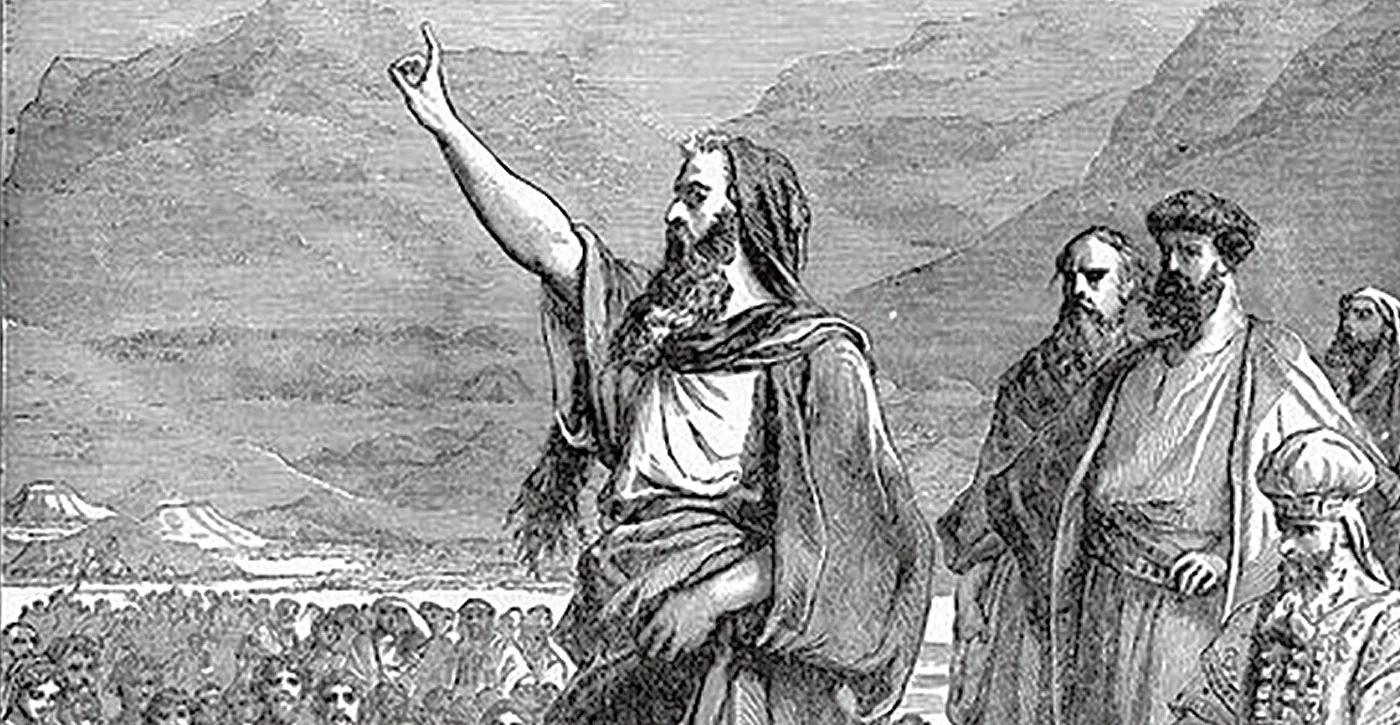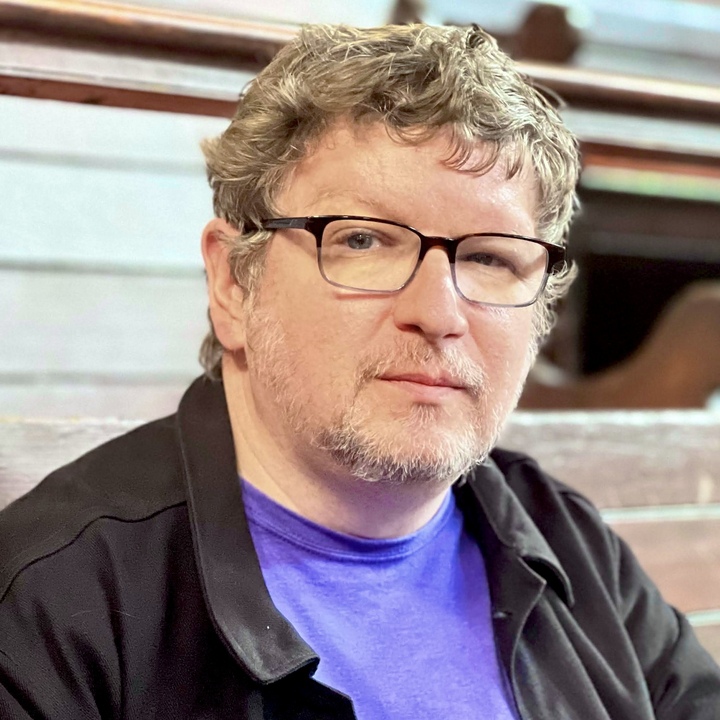New for 2025, the Bible Study column runs four times a year in the February, May, August, and November issues. We welcome your submissions and comments at Friendsjournal.org/bible-study.
See, I have set before you today life and prosperity, death and adversity. If you obey the commandments of the Lord your God that I am commanding you today, by loving the Lord your God, walking in his ways, and observing his commandments, decrees, and ordinances, then you shall live and become numerous, and the Lord your God will bless you in the land that you are entering to possess. But if your heart turns away and you do not hear but are led astray to bow down to other gods and serve them, I declare to you today that you shall certainly perish; you shall not live long in the land that you are crossing the Jordan to enter and possess. I call heaven and earth to witness against you today that I have set before you life and death, blessings and curses. Choose life so that you and your descendants may live, loving the Lord your God, obeying him, and holding fast to him, for that means life to you and length of days, so that you may live in the land that the Lord swore to give to your ancestors, to Abraham, to Isaac, and to Jacob.
What purpose does a religious society serve? I don’t just mean the Religious Society of Friends, but any community brought together by faith. Why do people work together in pursuit of their spiritual goals, instead of tackling them individually?
I think that, deep down, most of us recognize the power of solidarity. You may have seen and heard the phrase “mutual aid” with increasing frequency in recent years, in various contexts. When wildfires, floods, or other disasters devastate communities, for example, folks rally to provide the victims the resources to rebuild. They do this with no promise of reciprocity, but nevertheless they trust in their hearts that should they experience similar setbacks, help will come from somewhere.
These relief efforts often begin in religious communities. When you heard about the wildfires around Los Angeles earlier this year, or the flooding in North Carolina after Hurricane Helene last autumn, perhaps someone brought a leading to your meeting to send a donation to relief efforts in the region, or to the Quaker communities who experienced the loss of their meetinghouses or family homes. Perhaps your meeting discerned Spirit’s will in this leading, because they saw neighbors in need (no matter how far away) and wanted to do what they could to help.
Quakers don’t do such things to solicit God’s favor. (As readers often remind me, many Quakers don’t even believe in God anymore!) We offer our help, when we can, because we want the beloved community to thrive.
Some people look at the beloved community as a purely human endeavor, an idealized society in which everybody will treat everybody well because it makes the most sense to live life that way. Other people see God’s hand in its creation: “See,” God told the ancient Israelites, “I have set before you today life and prosperity, death and adversity.”
For the latter, the beloved community already exists. We just need to choose life.
The word “prosperity” trips some people up; they think God promises wealth to those who “[walk] in his ways, and [observe] his commandments.” If they like the sound of that, they might go through the motions expecting some sort of divinely orchestrated payout. If they don’t like the sound of that, they may cynically dismiss God’s covenant as a con game where some people take advantage of other people’s credulity and naivety.
I like the way the Common English Bible translates Deuteronomy 30:15. “Look here! Today I’ve set before you life and what’s good versus death and what’s wrong.” It sounds less elegant, maybe even a bit clunky, but it gets the point across. Walking in God’s ways may not bring you a fortune, but it puts you on the path to the beloved community—and if you follow the path devoutly, it doesn’t take long to get there.
When I say “devoutly,” I mean walking in God’s ways should become as natural to us as breathing. As the Shema, a passage from Deuteronomy central to religious observance for many Jews as a daily prayer, begins: “Hear, O Israel: The Lord is our God, the Lord alone. You shall love the Lord your God with all your heart and with all your soul and with all your might. Keep these words that I am commanding you today in your heart.”
You might recognize “You shall love the Lord your God with all your heart and with all your soul and with all your might” as the first of what Jesus called the two greatest commandments, closely followed by “You shall love your neighbor as yourself.” And here we find one point on which Jewish and Christian theology concur: We cannot separate these two commands.
In Quaker terms, we must live out the testimony of our love for God.
We could do that by ourselves, of course. Frankly, though, it becomes easier when we work together rather than competing against one another for the most or the biggest prizes. Living in the mindset of beloved community, receiving support and encouragement from those around us, we can become accustomed to letting support and encouragement flow from our hearts. We can learn to view others with love rather than suspicion, to see their happiness and prosperity bound up with our own.
We don’t always get it right. The world abounds with strong temptations, and we may lose our way as individuals, as institutions, even as a society. But the path remains accessible—perhaps because, many of us believe, God wants very much for us to find our way back.
Discussion Questions
- What are some of the ways members of your meeting, or you and your neighbors, come together to live in the mindset of beloved community?
- What small actions can you take to “choose life” on a daily basis?
- What small actions can you take today to reject “death and adversity”?





Comments on Friendsjournal.org may be used in the Forum of the print magazine and may be edited for length and clarity.